In the realm of heavy trucking, the suspension system plays a pivotal role in ensuring not only the safety and comfort of the driver but also the longevity and efficiency of the vehicle itself. At CarMax Vehicle, we specialize in designing and manufacturing advanced suspension systems tailored to meet the rigorous demands of modern heavy trucks. This comprehensive guide delves into the intricacies of heavy truck suspension systems, exploring their components, types, benefits, and maintenance practices to help you make informed decisions for your fleet.
Understanding Heavy Truck Suspension Systems
The suspension system of a heavy truck is a complex assembly designed to support the vehicle’s weight, absorb shocks from the road, and maintain tire contact for optimal handling and braking. Unlike passenger vehicles, heavy trucks face unique challenges such as carrying substantial loads, traversing uneven terrains, and enduring prolonged operational hours. Consequently, their suspension systems must be robust, adaptable, and engineered for resilience.
Key Components of Heavy Truck Suspension Systems
A typical heavy truck suspension system comprises several critical components, each serving a specific function:
| Component | Function |
|---|---|
| Springs | Absorb and distribute the weight of the vehicle and its cargo |
| Shock Absorbers | Dampen the oscillations of the springs, providing a smoother ride |
| Leaf Springs | Support heavy loads and maintain the truck’s level |
| Air Springs | Offer adjustable suspension settings for varying load conditions |
| Axles | Transfer the vehicle’s load to the wheels, ensuring stability |
| Bushings | Reduce friction and wear between moving parts |
| Control Arms | Maintain proper alignment of the wheels during movement |
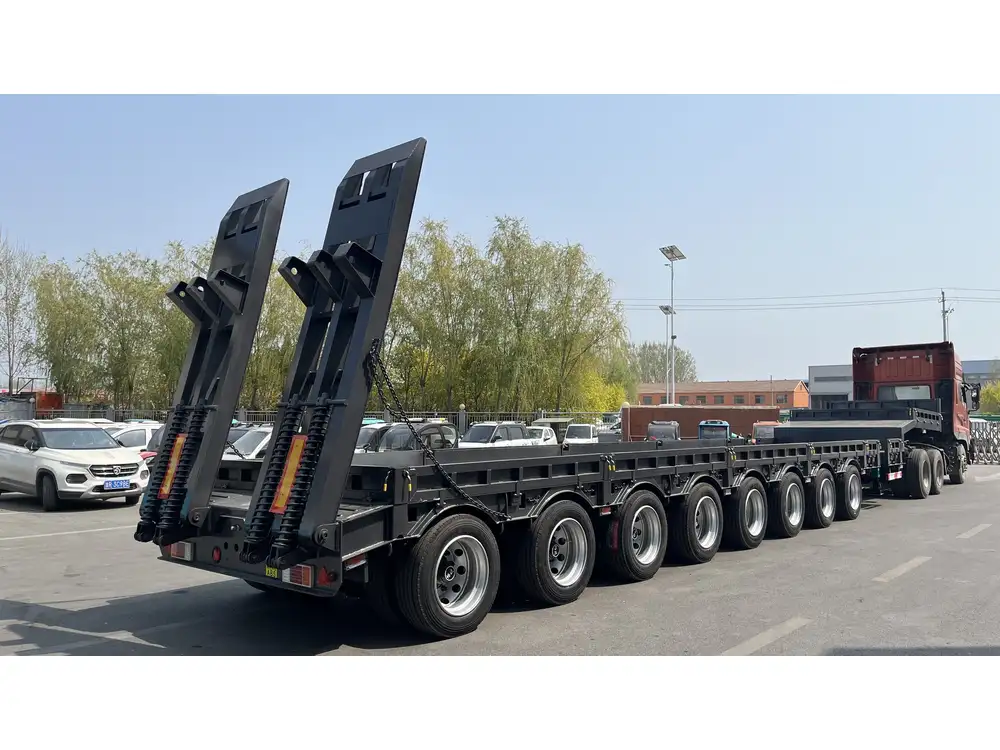
Types of Heavy Truck Suspension Systems
Heavy truck suspension systems can be broadly categorized into two main types: Leaf Spring Suspension and Air Suspension. Each type has its unique advantages and is suited to specific applications.
Leaf Spring Suspension
Leaf spring suspension is one of the oldest and most widely used suspension types in heavy trucks. It consists of multiple layers of metal (leaves) that flex to absorb shocks and support the vehicle’s weight.
Advantages:
- Durability: Highly resistant to wear and tear, making it ideal for rugged terrains.
- Load Capacity: Capable of handling heavy loads without significant degradation in performance.
- Simplicity: Fewer components make it easier to maintain and repair.
Disadvantages:
- Comfort: Offers a rougher ride compared to more modern suspension systems.
- Adjustability: Limited options for adjusting ride height and firmness.
Air Suspension
Air suspension systems utilize air springs instead of traditional metal parts, allowing for adjustable ride heights and improved ride quality.
Advantages:
- Adjustability: Easily adjustable to accommodate varying load weights and road conditions.
- Comfort: Provides a smoother and quieter ride, enhancing driver comfort.
- Reduced Wear: Minimizes wear on other suspension components due to better shock absorption.
Disadvantages:
- Complexity: More intricate with additional components like compressors and valves, requiring regular maintenance.
- Cost: Higher initial investment compared to leaf spring systems.

Innovative Suspension Technologies by CarMax Vehicle
At CarMax Vehicle, we integrate cutting-edge technologies into our suspension systems to deliver unparalleled performance and reliability. Some of our innovative solutions include:
- Adaptive Suspension Control: Automatically adjusts suspension settings based on load and road conditions.
- Electronic Monitoring Systems: Continuously track suspension performance, enabling predictive maintenance.
- Integrated Hydraulic Systems: Enhance load management and stabilization for oversized or unevenly distributed cargos.
Benefits of Advanced Heavy Truck Suspension Systems
Investing in a high-quality suspension system yields numerous benefits that extend beyond mere vehicle performance. Here are some key advantages:
Improved Vehicle Stability and Handling
A well-engineered suspension system ensures that the heavy truck maintains optimal contact with the road, providing better traction and maneuverability. This enhanced stability is crucial for preventing accidents, especially when carrying heavy or uneven loads.

Enhanced Driver Comfort and Safety
Smooth suspension translates to a more comfortable ride, reducing driver fatigue during long hauls. Additionally, a stable suspension system contributes to safer braking and steering responses, mitigating the risk of accidents.
Increased Load Capacity and Efficiency
Advanced suspension systems distribute the vehicle’s weight more evenly, allowing for higher load capacities without compromising performance. This efficiency not only maximizes cargo transport but also reduces fuel consumption by minimizing unnecessary strain on the engine and other drivetrain components.
Extended Vehicle Lifespan
By absorbing shocks and reducing stress on the chassis and other structural elements, superior suspension systems significantly extend the lifespan of both the vehicle and its components. This longevity translates to lower maintenance costs and a better return on investment.
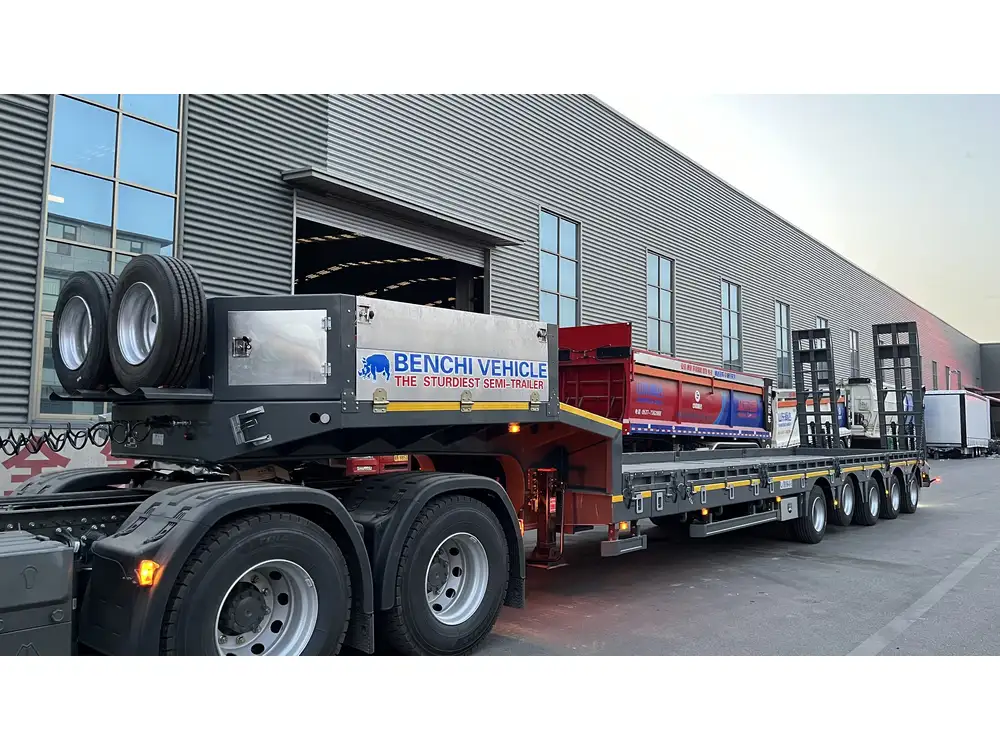
Choosing the Right Suspension System for Your Fleet
Selecting the optimal suspension system for your heavy trucks involves evaluating various factors, including load requirements, road conditions, and budget constraints. Here’s a step-by-step approach to making an informed decision:
1. Assess Load Characteristics
Understand the typical load weights, distribution, and frequency of transport. Heavy and uneven loads may benefit more from air suspension systems, while consistent and moderately heavy loads might be adequately supported by leaf springs.
2. Evaluate Road Conditions
Frequent travel on rough or uneven terrains calls for more robust suspension systems with superior shock-absorbing capabilities. Consider adaptive suspension technologies for fleets that operate in diverse environments.

3. Consider Maintenance and Reliability
Opt for suspension systems that align with your maintenance capabilities. While air suspension offers superior comfort and adjustability, it requires more diligent maintenance compared to the straightforward leaf spring systems.
4. Budget and Cost-Benefit Analysis
Balance the initial investment with the long-term benefits. Advanced suspension systems may have higher upfront costs but can lead to significant savings through improved fuel efficiency, reduced maintenance, and extended vehicle lifespan.
5. Manufacturer Reputation and Support
Choose suspension systems from reputable manufacturers like CarMax Trailer, known for their quality, reliability, and excellent customer support. Reliable after-sales service ensures that any issues are promptly addressed, minimizing downtime.

Maintenance Best Practices for Heavy Truck Suspension Systems
Proper maintenance is essential to ensure the longevity and optimal performance of heavy truck suspension systems. Here are some best practices to follow:
Regular Inspections
Conduct routine inspections to identify signs of wear and tear, such as cracks in leaf springs, leaks in air springs, or damaged bushings. Early detection allows for timely repairs, preventing minor issues from escalating.
Lubrication of Moving Parts
Regularly lubricate suspension components like bushings and control arms to reduce friction and prevent premature wear. Use manufacturer-recommended lubricants to ensure compatibility and effectiveness.
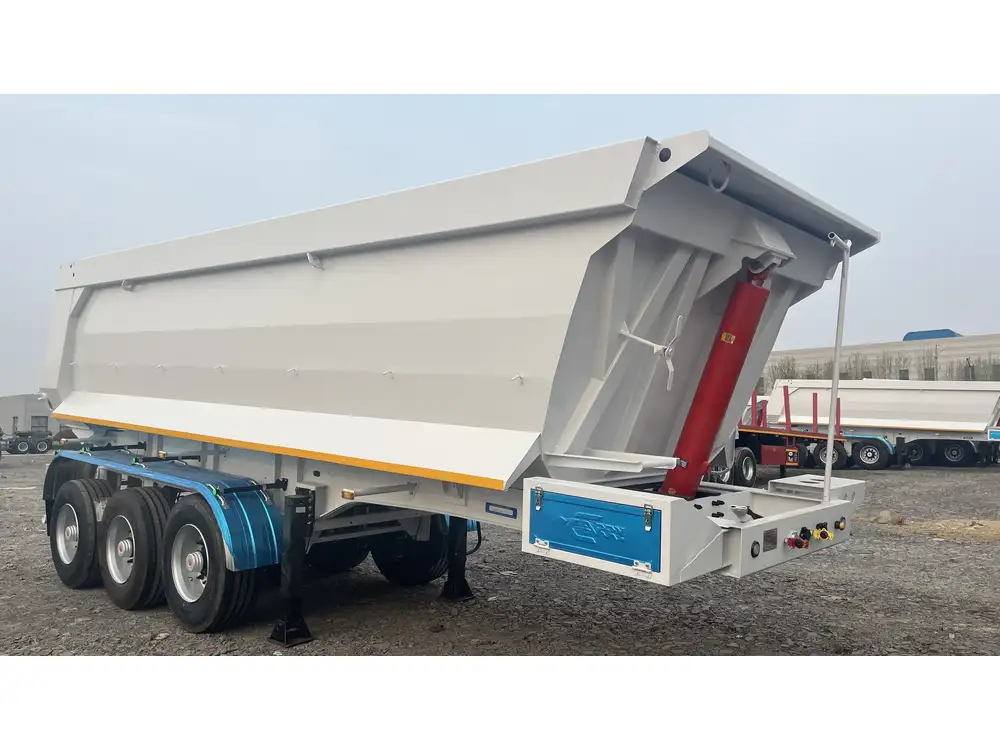
Monitoring Air Pressure
For air suspension systems, consistently monitor air pressure levels to maintain optimal performance. Fluctuations in pressure can affect ride quality and load handling, necessitating immediate adjustments.
Cleaning and Protection
Keep suspension components clean and free from debris, mud, and corrosive substances. Washing the undercarriage regularly and applying protective coatings can prevent rust and corrosion, particularly in harsh environments.
Professional Maintenance Services
Engage professional maintenance services for complex tasks such as replacing shock absorbers or repairing air suspension components. Certified technicians ensure that repairs are performed correctly, maintaining the integrity of the suspension system.
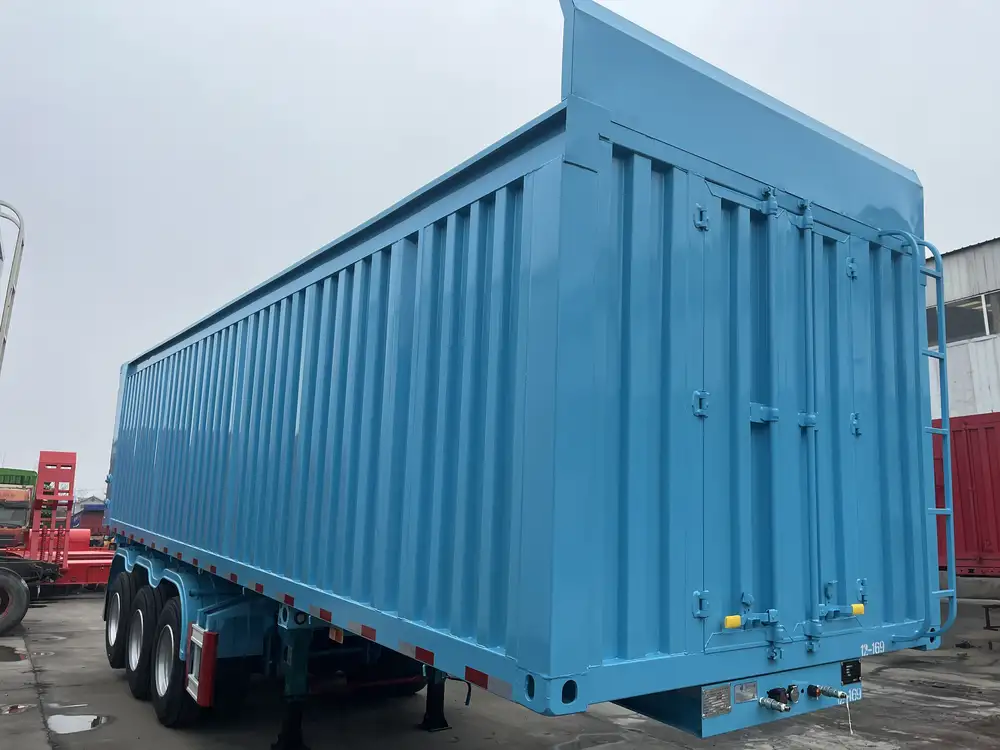
The Future of Heavy Truck Suspension Systems
As the trucking industry advances, so do the technologies underpinning heavy truck suspension systems. Emerging trends focus on enhancing efficiency, sustainability, and connectivity.
Electrification and Smart Technologies
The integration of electronic controls and smart technologies is revolutionizing suspension systems. Features like adaptive damping, real-time performance monitoring, and automated adjustments are becoming standard, offering unprecedented levels of customization and control.
Sustainable Materials and Eco-Friendly Designs
Manufacturers are increasingly adopting sustainable materials and eco-friendly manufacturing processes. Lightweight yet durable materials contribute to fuel efficiency, while innovative designs minimize environmental impact without compromising performance.
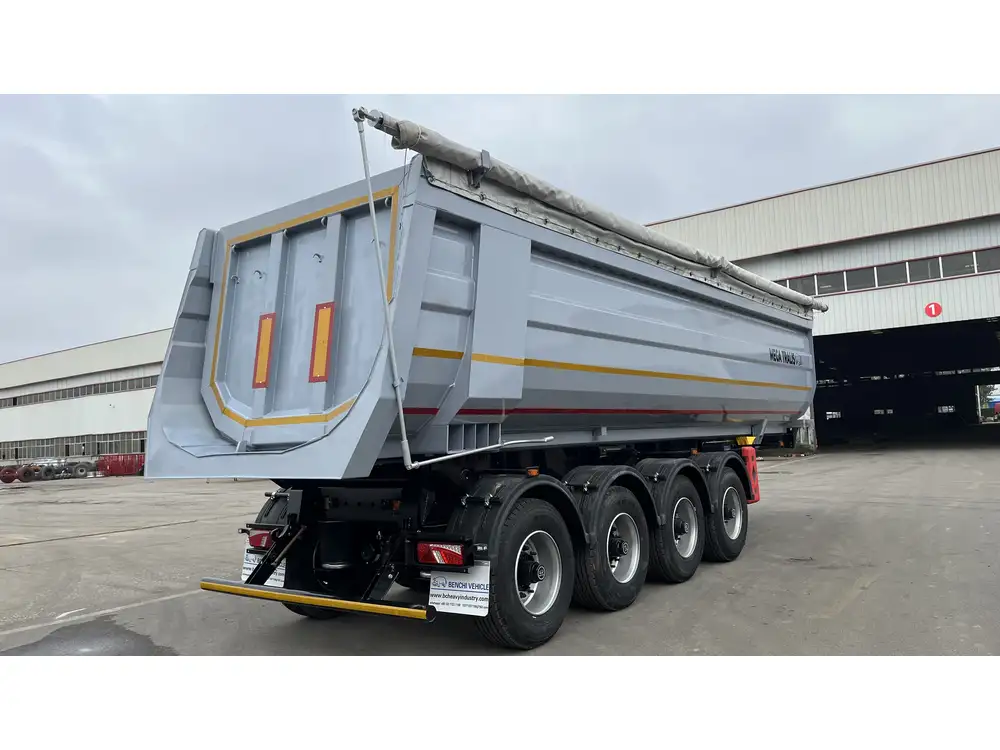
Autonomous and Connected Vehicles
With the rise of autonomous and connected vehicles, suspension systems are evolving to support new functionalities. Enhanced stability and precision in suspension mechanics are crucial for the safe operation of self-driving heavy trucks, ensuring seamless integration with autonomous control systems.
Why Choose CarMax Trailer for Your Heavy Truck Suspension Needs
At CarMax Trailer, we understand the critical role that suspension systems play in the performance and reliability of heavy trucks. Our commitment to innovation, quality, and customer satisfaction sets us apart in the industry. Here’s why partnering with us is a smart choice:
Expertise and Experience
With years of experience in manufacturing heavy truck suspension systems, our team possesses the expertise to design solutions that meet the specific needs of your fleet. We stay abreast of industry trends and technological advancements to deliver state-of-the-art products.
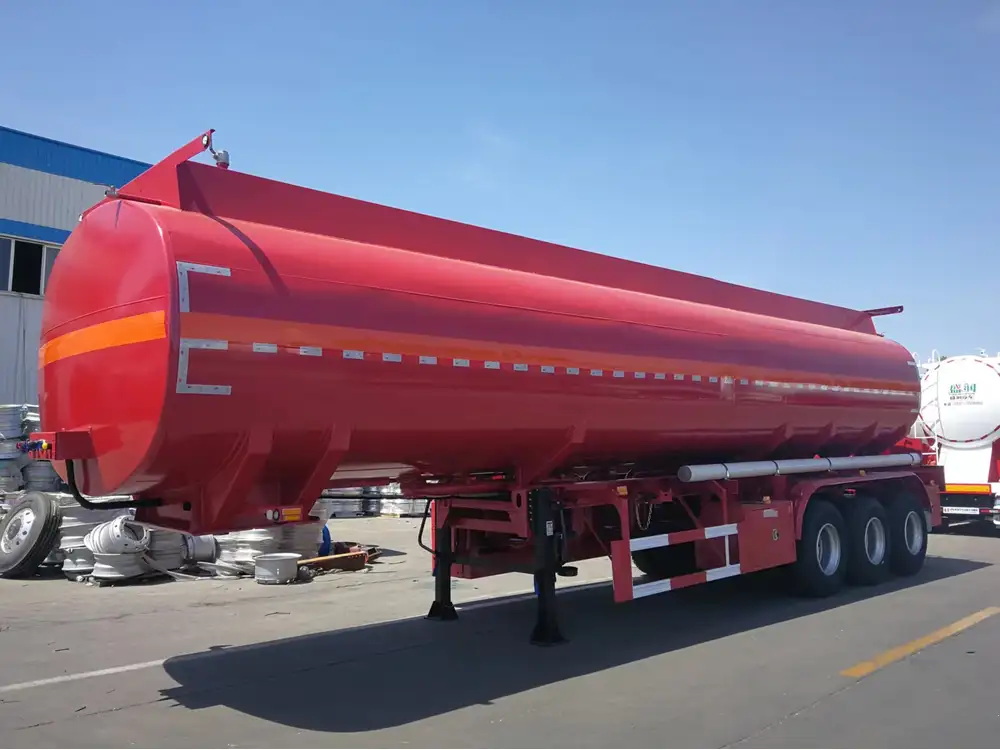
Customized Solutions
We recognize that each fleet has unique requirements. Our suspension systems are customizable, allowing you to select configurations that best suit your operational demands, whether it’s enhanced load capacity, improved ride comfort, or advanced adjustability.
Quality Assurance
Quality is at the forefront of our manufacturing process. From selecting premium materials to rigorous testing protocols, we ensure that every suspension system leaving our facility meets the highest standards of durability and performance.
Comprehensive Support
Our relationship with clients extends beyond the purchase. We offer comprehensive support services, including installation guidance, maintenance tips, and prompt customer service to address any concerns or queries you may have.
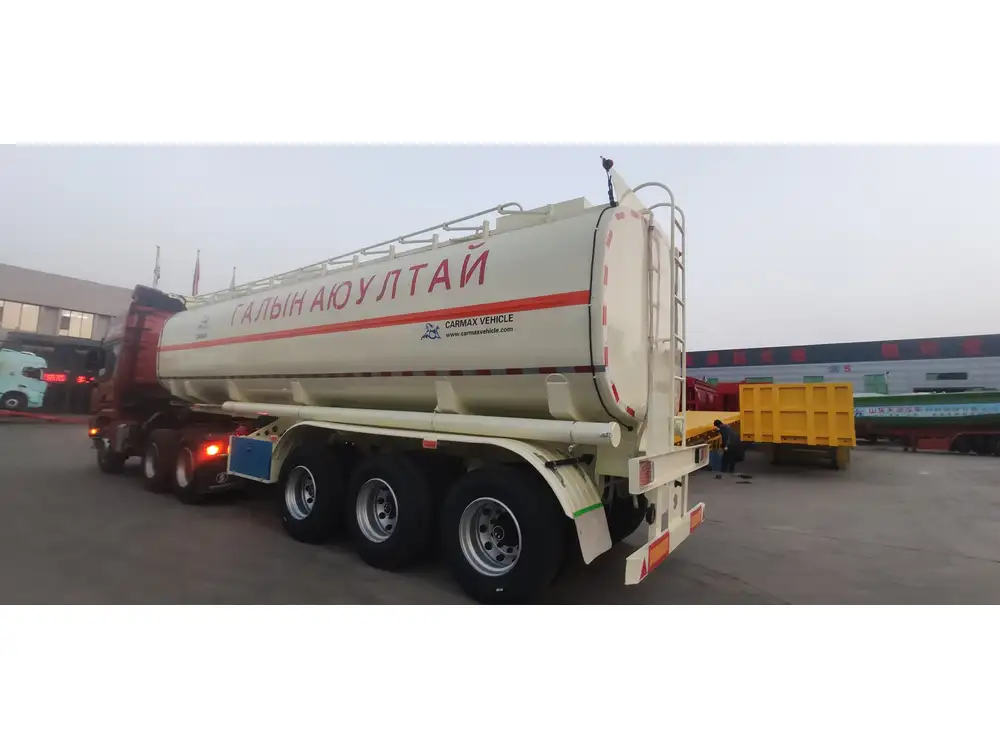
Competitive Pricing
We strive to provide top-tier suspension systems at competitive prices, ensuring that you receive maximum value for your investment without compromising on quality or performance.
Conclusion
Heavy truck suspension systems are integral to the efficiency, safety, and longevity of your fleet. At CarMax Vehicle, we are dedicated to delivering superior suspension solutions that meet the demanding standards of the trucking industry. By understanding the complexities of suspension systems and staying ahead of technological advancements, we empower you to enhance your fleet’s performance and reliability.
Investing in the right suspension system is not merely a choice but a strategic decision that impacts your operational success. Trust CarMax Trailer to provide the expertise, quality, and innovation necessary to keep your heavy trucks running smoothly and efficiently on every journey.
Frequently Asked Questions

1. What are the main differences between leaf spring and air suspension systems for heavy trucks?
Leaf spring suspension is simpler and more durable, making it suitable for heavy loads and rugged terrains, while air suspension offers greater adjustability and comfort, ideal for varying load conditions and smoother rides.
2. How often should heavy truck suspension systems be inspected?
Suspension systems should be inspected regularly, ideally before and after long hauls or at least once every few weeks. Regular inspections help identify and address wear and tear early, ensuring optimal performance and safety.
3. Can I retrofit my existing heavy truck with an air suspension system?
Yes, retrofitting is possible, but it requires careful assessment of your current suspension setup and professional installation to ensure compatibility and functionality. Consult with a suspension specialist to determine the best approach for your specific needs.
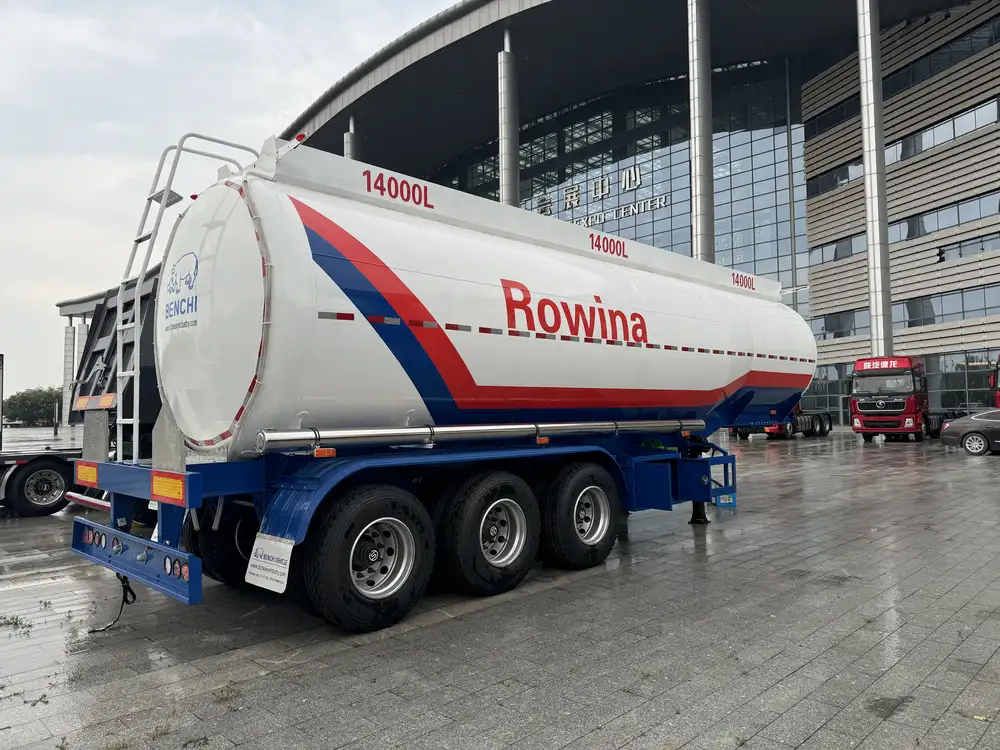
4. What maintenance practices can extend the lifespan of my suspension system?
Regular inspections, timely lubrication of moving parts, monitoring air pressure levels (for air suspensions), keeping components clean, and addressing issues promptly are key practices that can significantly extend the lifespan of your suspension system.
5. How do advanced suspension technologies like adaptive suspension control benefit heavy truck operations?
Adaptive suspension control automatically adjusts suspension settings based on load and road conditions, enhancing vehicle stability, improving ride comfort, and optimizing handling. This results in safer, more efficient operations and reduced driver fatigue.



